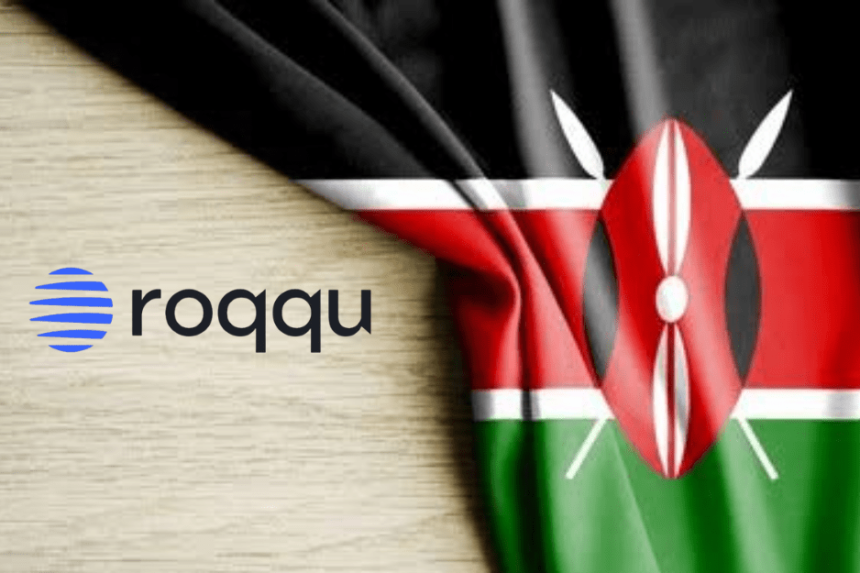Nigerian crypto startup, Roqqu, has acquired Flitaa, a Kenya and Nigeria-based crypto exchange. Although the deal value was not disclosed, reports estimate it falls between $85,000 and $350,000.
The acquisition, which Roqqu claims has received regulatory approval, positions the startup for expanding its African footprint beyond Nigeria, and builds a case for crypto consolidation across the continent.
“We’re not just building to expand to Europe,” Ayo Shonibare, Roqqu’s chief marketing officer, said. “We also want to expand into our home base [Africa], so it only makes sense that in our quest for this expansion, we also expand into our own home territory.”
What This Means
By acquiring Flitaa, Roqqu gains immediate access to Kenya’s crypto market without the bureaucratic hurdles of securing a new Virtual Asset Service Provider (VASP) licence, a process still under review by a multi-agency task force in Kenya.
Flitaa had already met local compliance requirements and built modest traction through its integration with M-PESA, Kenya’s dominant mobile money platform.
“Flitaa had already figured it out in Kenya. Rather than go through the entire hassle of setting up from scratch, we saw value in their groundwork, especially their plans to expand into Uganda, Rwanda, and Tanzania. They had already set up the operational processes in these countries,” Shonibare explained.
As part of the deal, Flitaa will continue operating independently under Roqqu’s infrastructure, but its leadership and staff have exited the company. Great Onomor, a Roqqu director, will now serve as CEO of Flitaa.
“We want to stabilise the operations of Flitaa and make sure they are as strong as Roqqu’s,” said Shonibare. “Our goal is to ensure that existing and new users enjoy the same experience across both platforms.”
Roqqu’s Next Moves
Founded in 2019, Roqqu has 141+ crypto assets now, 1.7m registered users, and over 150 team members.
“This is our first acquisition, but it will be the first of many to come,” said Shonibare, signalling more activity as the company moves deeper into Africa.
With this acquisition, the Nigerian crypto startup is looking to expand deeper into Africa, using Flitaa’s operational groundwork.
“Our plan is to deepen Roqqu’s footprints across the African continent,” said Benjamin Onomor, Roqqu CEO. “We want to help millions of people engage with this Web3 economy for the benefit of the continent and everyone in it.”
Why This Deal Matters
Africa’s cryptocurrency market is one of the fastest-growing globally, driven by high mobile penetration, limited access to traditional banking, and a young, tech-savvy population.
According to 6WResearch, Africa’s cryptocurrency market is projected to grow from approximately $2.5 billion in 2025 to around $11 billion by 2031.
Industry experts cite the Flitaa acquisition as a pivotal moment for the continent’s crypto space, highlighting an urgency among African crypto startups to consolidate and scale operations.
The deal also echoes similar urgency seen in 2023 when Blockfinex acquired Nigerian startup Fluidcoins in a cross-market transaction.
With this acquisition, Roqqu sends a message that African crypto firms are capable of building regional infrastructure, expanding across borders, experts added.
Talking Points
Roqqu’s acquisition of Flitaa signals a new phase of maturity in the continent’s digital asset space, where consolidation is not just a survival strategy but a deliberate approach to scale.
At Techparley, we view this deal as a smart operational shortcut. Rather than build from scratch, Roqqu acquired a platform that had already integrated with M-PESA and established the groundwork for expansion into Uganda, Rwanda, and Tanzania.
Looking ahead, this acquisition could serve as a playbook for other African crypto startups navigating expansion in a fragmented regulatory environment.
By demonstrating that local M&A is both possible and beneficial, Roqqu opens the door for more collaboration across the continent. If done right, this could be the start of a wave of African-led crypto infrastructure.





